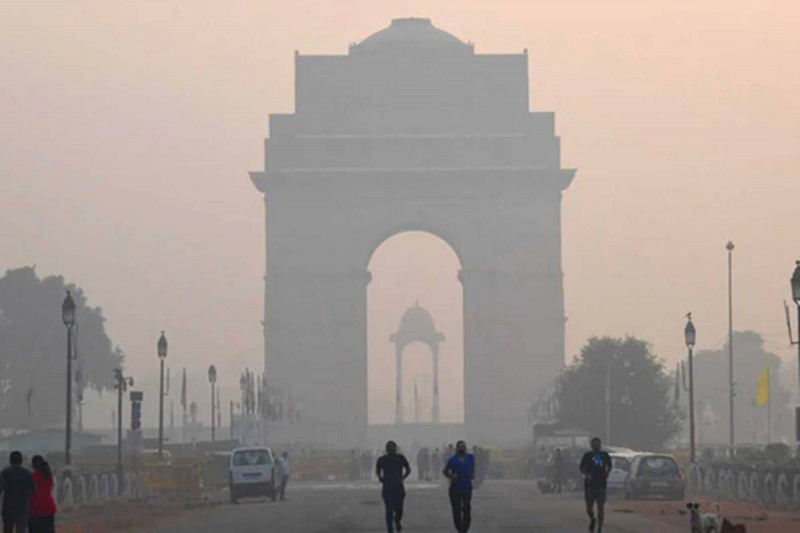
Air pollution across New Delhi have climbed to levels around nine times what the WHO considers safe, turning grey winter skies into a putrid yellow and shrouding national monuments. Levels of the most dangerous particles ( PM 2.5), climbed to around 250 micrograms per cubic meter, which is considered hazardous to breathe, as per the state-run System of Air Quality Weather Forecasting and Research.
The air quality of Delhi has now been a matter of concern, coupled with rising corona cases, which proved "doubly detrimental" to people suffering from respiratory ailments, as their complications have hiked and many of them have also contracted COVID-19 infection, experts said on Wednesday. Many doctors and medical experts had earlier cautioned that rising air pollution connected with the ongoing pandemic, could make matters worse for people with lung or breathing-related complications.
Suranjit Chatterjee, a senior consultant at Apollo Hospitals, said that "The air quality in the last six days being particularly terrible, we are seeing a jump in cases of respiratory illnesses and with greater severity than say, the scenario last November when also the pollution level was very high. But, this unpredictable virus is what is causing all the more complications."
Delhi recorded a 24-hour average air quality index (AQI) of 476, which falls in the "severe" category. The neighboring cities of Faridabad (448), Ghaziabad (444), Noida (455), Greater Noida (436) and Gur gaon (427), which fall in the National Capital Region (NCR), also recorded "severe" air quality.
Poisonous air outbreak in Delhi-NCR, 73% of households sick
Delhi: Gunshot by Bank guard, 3 people injured
DDMA to take big decision in Delhi regarding Chhath Puja